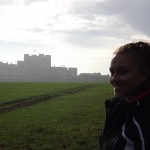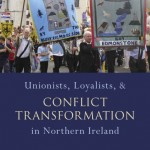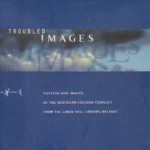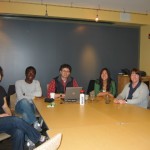Coming to London has been a surprising culture shock.
When I’m living in Northern Ireland, everything seems pretty normal. I mean, I know on a cognitive level that some things are weird, but that’s just how it is. That’s how life is and I’m not going to change it in the three months that I’m there so it doesn’t affect it and I just continue with life. But, coming to London has been a crazy.
I knew as Josh and I were flying out that it would feel different, but I didn’t think about it too much. But then we landed and there were Union Jacks everywhere. And suddenly I found myself explaining that I live next to a peace wall. Then I’m trying to explain why calling the city “Derry” or “Londonderry” is political and contentious. And I’m casually mentioning the bombs in Derry/Londonderry and on the Antrim Road. And I’m talking about the giant murals of men in ski masks holding machine guns. And I’m realizing I don’t have to amend the statement “republican” to “American Republican.” And I’m explaining the Dissident Republicans. And I’m talking about how cool it is that the Free Derry Museum has clothes with gun shots and blood stains. I’m laughing about how you don’t have to worry about “normal” crime in Belfast, just teenagers throwing rocks or worse over the wall. And I find myself thinking about how I was told by a Northern Irish classmate that basically everyone in Northern Ireland can make a bomb, or at least a petrol bomb. I start explaining how British, Irish, Israeli, and Palestinian flags are all really political.
And suddenly I find myself shocked. Belfast and London, though technically under the same government, are completely different worlds. I don’t need to pay attention to the sound of fireworks to make sure they are only fireworks, not gun shots. I don’t need to be concerned with coming off as sectarian when I’m not. I realize why my friends and parents worry about me.
When I’m in Belfast I don’t feel like I’m tense, or like I’m watching my back. I mean it all sounds really bad and very scary. And know what, sometimes it is. Some days I can’t handle seeing some of the murals. Some days I worry when I hear about near by bombs. But most the time I am fine. Most the time I just note my surroundings and continue on my way. I make sure to avoid Northern Irish politics or religion when I’m outside of class. I worry that my claddagh ring will say something to someone other than relationship status. But, it doesn’t seem bad. It feels normal.
Honestly, living there, it’s not that bad. Compared to what it has the potential to spiral into if something goes wrong, compared to what it was 10 years ago, it’s going really well. But when you are outside of it, it doesn’t look that way. It looks really bad, and dangerous, and scary.
I guess I’m saying that compared to life in a peaceful country Northern Ireland looks really bad, but it’s just life as usual and it’s getting better.
Honestly, I’m still sitting here feeling like my mind is blown. I know I’ve called Northern Ireland a post conflict society before, but I never really had the moment of understanding that some of the situations I’m now finding normal really aren’t. It makes me really proud of how far the country has come. It gives me a new awareness of how precarious the whole socio-political situation is. And it gives me a more serious drive to work for more change in Northern Ireland.
I have hope that within my life time Northern Ireland will stop feeling like a post conflict society, and just feel like a normal society.
Written on 6 November 2011 by Hannah Kurtz ’13



























